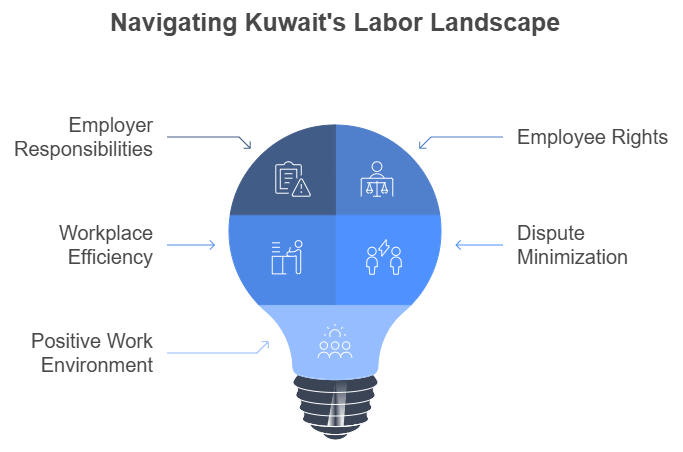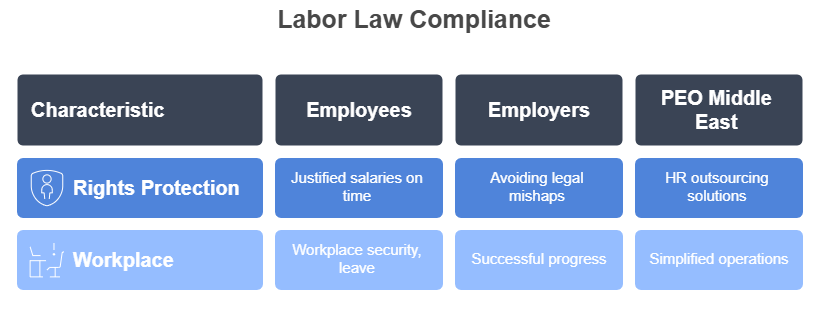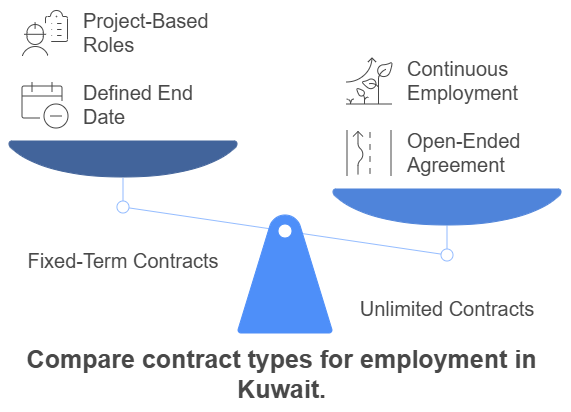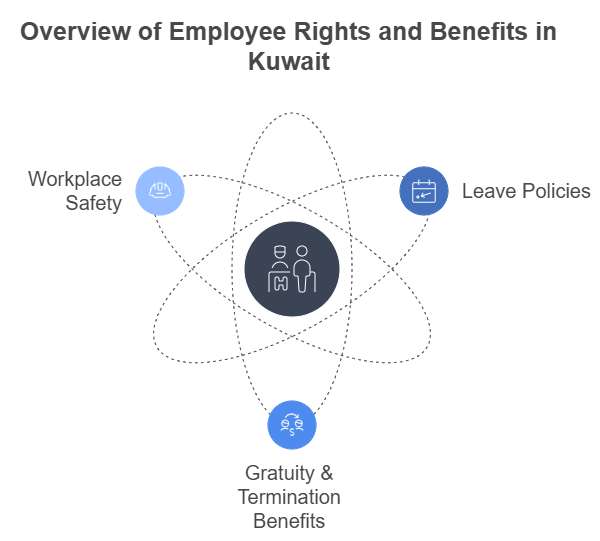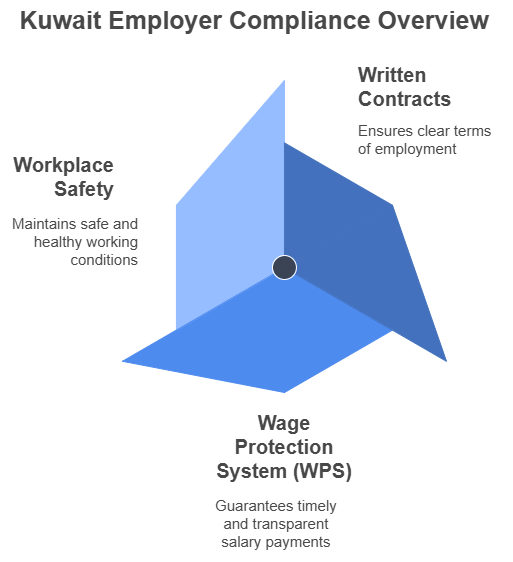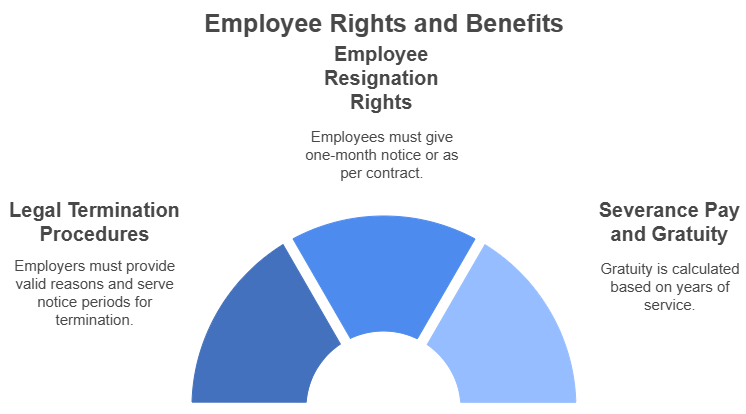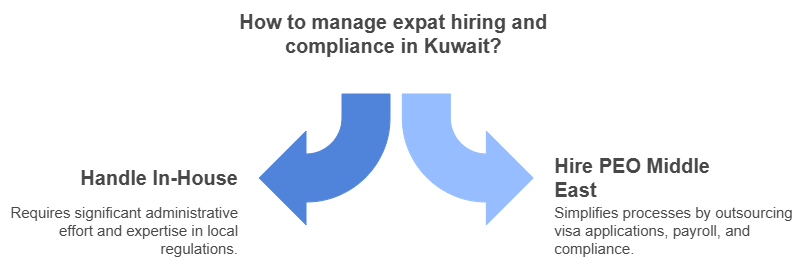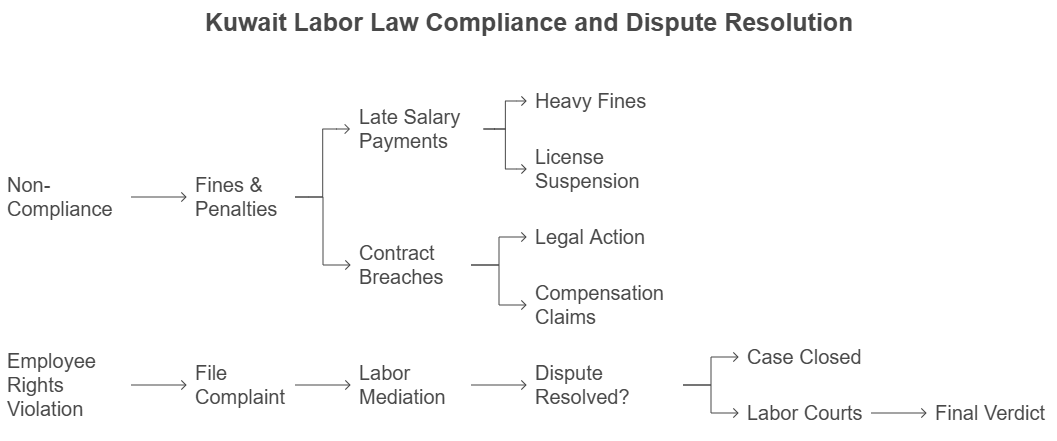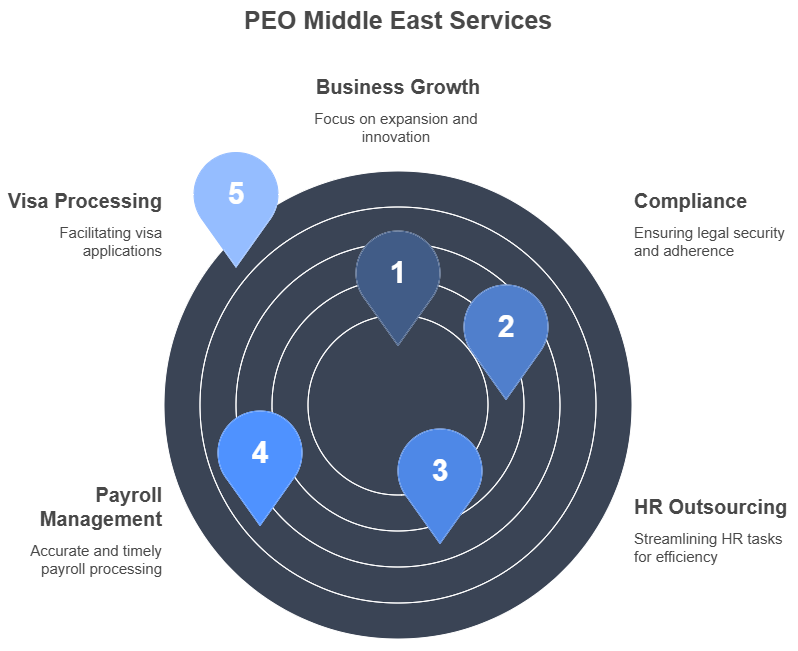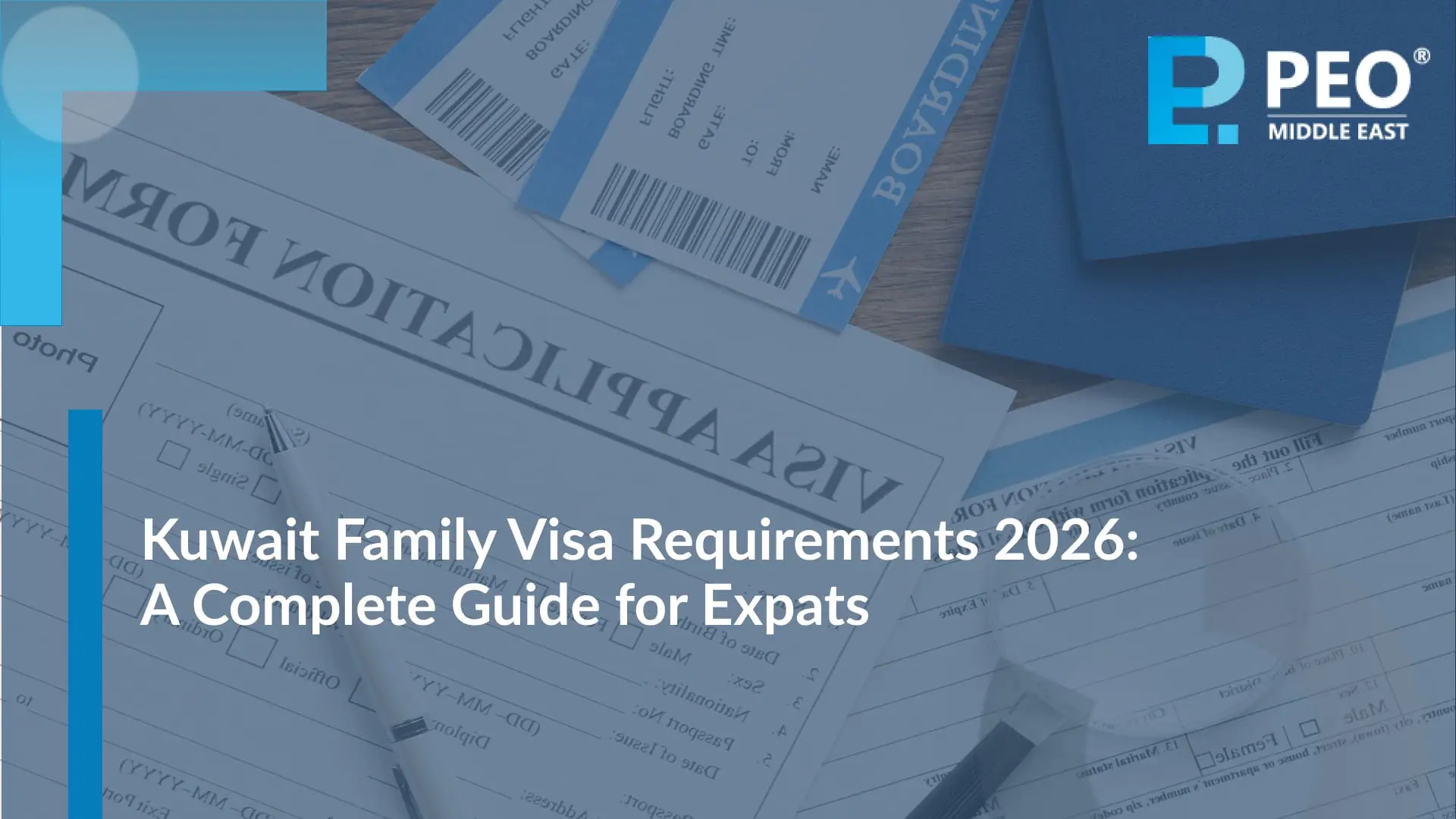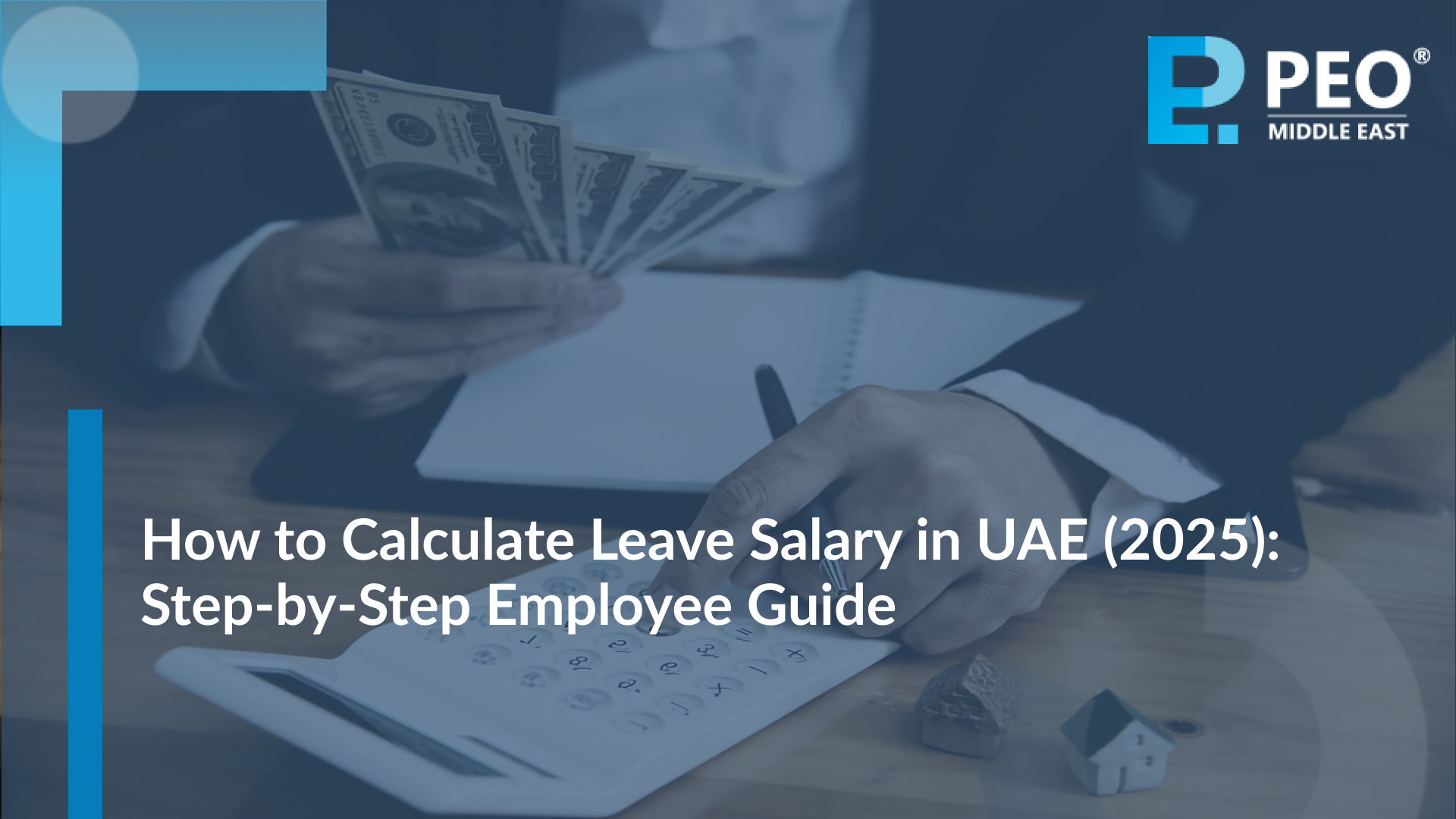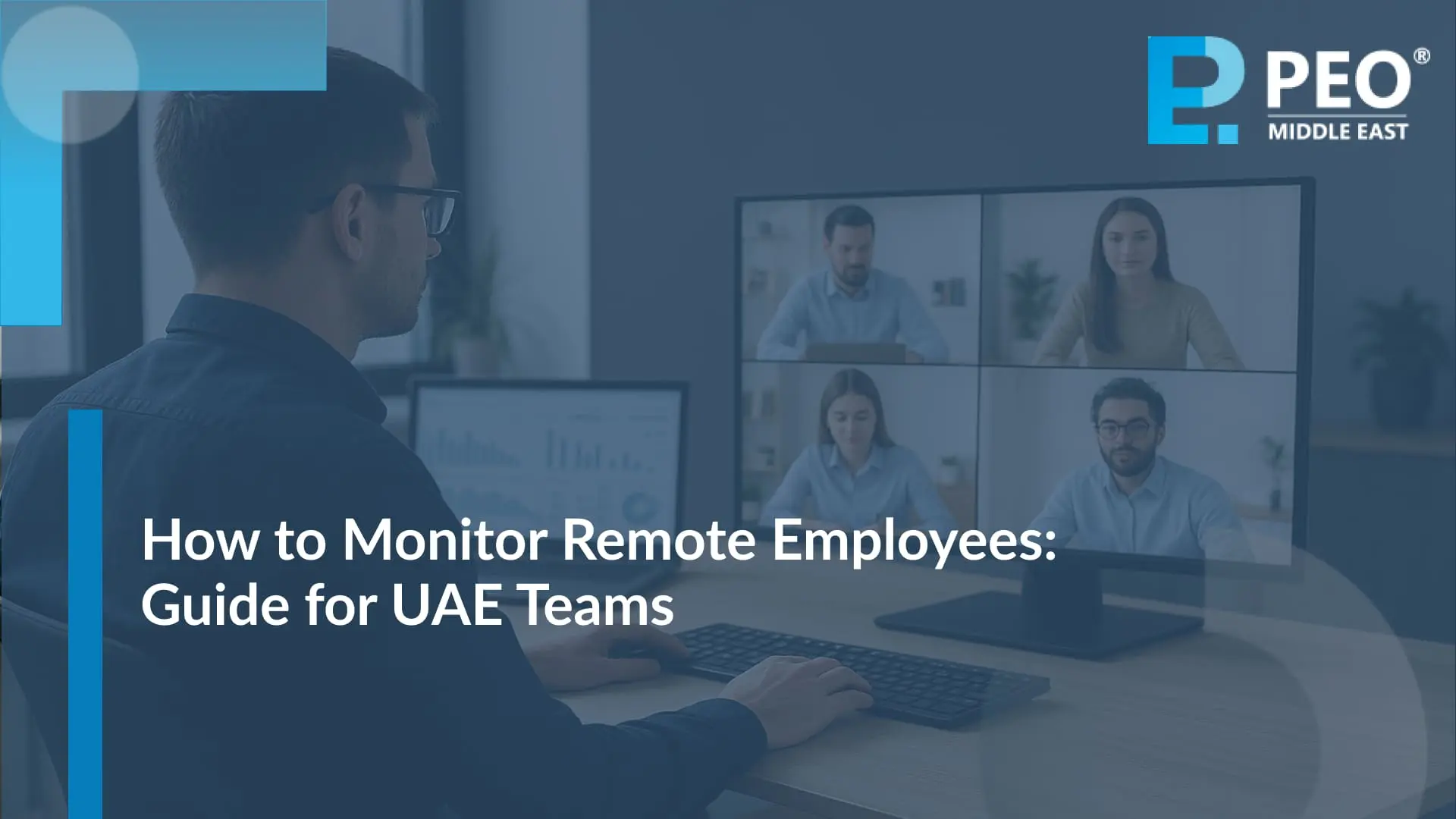Kuwait’s labor market operates on the foundation of rules, which drive the growth and progress of the employment sector. Both employers and workers have their own set of rules, and knowing them can make a big difference. Employers must align their business operations with the legal guidelines and avoid penalties. On the other hand, employees should understand their rights to ensure fair treatment. When both sides are well-informed, workplaces run efficiently, disputes are minimized, and everyone benefits from a more positive work environment. Businesses are rising in the city of Kuwait. However, each enterprise regardless of their size, is required to follow Kuwait labor law.
Understanding these labor regulations is mandatory for both employees and employers. These laws include workplace rights, employer obligations, and compliance measures. This ultimately ensures fair treatment and legal protection for all workers. Whether you are an employee seeking to understand your benefits or an employer aiming for compliance, this guide provides everything you need to know.
Importance of Understanding Kuwait Labor Law for Employers & Employees:
Protecting the rights of employees, Kuwait labor law ensures that every worker gets paid justified salaries on time. It provides workplace security while offering the convenience of leave entitlements. The benefits work both ways, even the employers are successfully making progress by avoiding any legal mishap along the way.
How PEO Middle East Helps Businesses Stay Compliant?
Businesses can easily maintain compliance with PEO Middle East by their side. Our HR outsourcing solutions ensure the businesses stay aligned with the Kuwait labor regulations. PEO Middleast offers simplified operations from employment contracts to payroll management and visa processing without letting go of full adherence to labor laws.
Employment Contracts in Kuwait
Understanding the different types of employment contracts in Kuwait is essential for both employers and employees. Contracts define the scope of work, obligations, and rights under the law.
Types of Employment Contracts (Fixed-Term vs. Unlimited)
Kuwait labor law recognizes two main types of employment contracts:
- Fixed-term contracts: Have a defined start and end date, commonly used for project-based roles.
- Unlimited contracts: Open-ended agreements that continue unless terminated by either party.
Key Contract Terms Required Under Kuwait Labor Law<
Employment contracts in Kuwait must include:
- Job title and description
- Salary and payment terms
- Working hours and leave entitlements
- Termination conditions
- Probation period terms
Probation Period Rules and Regulations
Under Kuwait labor law, the probation period cannot exceed 100 days. During this period, either party may terminate the contract with notice. Employees under probation must receive all legally entitled benefits.
Working Hours & Overtime Regulations
Work-life balance matters! Kuwait labor law specifies working hours, overtime rates, and rest day policies to ensure fair treatment for employees.
Standard Working Hours in Kuwait
- Standard work hours: 8 hours per day, 48 hours per week
- During Ramadan, work hours are reduced to 6 hours per day
Overtime Rules & Compensation Requirements
- Overtime must be voluntary and compensated at 125% of the hourly wage.
- If work is required on weekends or holidays, the rate increases to 150%.
Rest Days, Weekends, and Public Holiday Entitlements
- One rest day per week (Friday or Saturday in most cases)
- Annual public holidays include Eid, National Day, and New Year’s Day
Employee Rights & Benefits:
Employees in Kuwait are entitled to various benefits, including leave policies, gratuity, and workplace safety measures.
Annual Leave, Sick Leave, and Maternity/Paternity Leave Policies:
| Leave Type | Entitlement |
| Annual Leave | 30 days (after 1 year of service) |
| Sick Leave | Up to 40 days (full/partial pay) |
| Maternity Leave | 70 days paid + 30 unpaid days |
| Paternity Leave | 3 days |
End-of-Service Gratuity & Termination Benefits:
Employees completing one year of service are entitled to gratuity upon termination. The calculation depends on tenure and the last salary drawn.
Workplace Safety & Employee Protections Under Kuwait Labor Law:
Employers must ensure safe working conditions by providing protective gear, regular health checkups, and safety training.
Employer Responsibilities & Compliance:
Employers in Kuwait must comply with strict legal obligations, from fair wages to workplace safety and adherence to labor laws.
Key Legal Obligations for Employers in Kuwait:
Employers must:
- Provide written contracts
- Ensure wage payments via the Wage Protection System (WPS)
- Maintain workplace safety standards
Wage Protection System (WPS) Compliance:
Kuwait enforces WPS to guarantee timely salary payments through regulated banking systems, ensuring transparency and preventing wage disputes.
Health & Safety Regulations in the Workplace:
Businesses make sure to stay aligned with occupational health laws. This leads to safe workplaces with foolproof hygiene and fire safety. The working environment will be up to the standards of emergency preparedness.
Termination, Resignation & End-of-Service Benefits:
If you’re employed in any company, it is extremely important to be familiar with your rights. This encompasses termination, resignation, and severance pay. This saves you in the future from any chaos.
Legal Termination Procedures for Employers
Employers are required to give a foolproof reason for termination. For instance, they can end employment over misconduct or redundancy. The notice period will also be served.
Employee Rights When Resigning or Being Terminated
- Resignation requires one-month notice (or as per contract).
- Termination without valid cause can lead to compensation claims.
Severance Pay Calculations & Gratuity Entitlements
Gratuity is calculated as 15 days’ pay per year for the first 5 years and one month’s salary per year after that.
Hiring Expats & Work Visa Regulations
Kuwait attracts expat workers, but strict visa and sponsorship rules apply to hiring foreign talent.
- Sponsorship & Work Permit Requirements for Foreign Employees: Employers must act as sponsors for expat workers and secure their work permits.
- Residency Rules & Employer Obligations: Expats must obtain residency visas, and employers must handle renewals and medical clearances.
How PEO Middle East Simplifies Work Visa & Payroll Compliance
PEO Middle East ensures hassle-free hiring by handling visa applications, payroll processing, and compliance management.
Kuwait Labor Law Penalties & Legal Consequences
In case of non-compliance to the labor laws and violating regulations, fines, and penalties may be implied. This makes it mandatory for every business to follow regulations.
Common Labor Law Violations & Penalties for Employers
- Late salary payments: Heavy fines and possible license suspension
- Contract breaches: Legal action and compensation claims
Employee Rights in Case of Wrongful Termination or Contract Breaches
Employees can file complaints with the labor department if their rights are violated.
Dispute Resolution & Labor Court Processes in Kuwait
Disputes are first addressed through labor mediation. If unresolved, cases are taken to labor courts for final verdicts.
How PEO Middle East Can Help
Compliance with labor law and managing payroll come with a lot of burdens to handle. Outsourcing HR services brings convenience to these tasks and also, streamlines work visa processing. By partnering with PEO Middle East, companies can ensure adherence to employment regulations, avoid costly penalties, and reduce administrative workload.
Expert PEO & HR Outsourcing Solutions in Kuwait
Experiment with comprehensive support with HR solutions provided by PEO Middle East. This makes your operations go smoothly without disruptions.
Ensuring Full Compliance with Kuwait Labor Regulations
With in-depth expertise, PEO Middle East helps businesses navigate labor laws, ensuring legal security.
Payroll, Visa Processing & Employee Management Support
By outsourcing payroll, visas, and HR tasks, businesses can focus on growth while staying compliant.
Conclusion
Following laws and regulations is unavoidable for every business to operate successfully in Kuwait. The businesses that stay compliant with Kuwait labor law lead to a trouble-free pathway. There will be no penalty or costly fines applied. Along with protecting enterprises from legal issues, employers boost a professional environment by following these rules.
Employees also leverage the benefits that are effective as a result of compliance. These include fair treatment, timely payments, and job security. All these aspects create a balanced and productive workplace for all.


